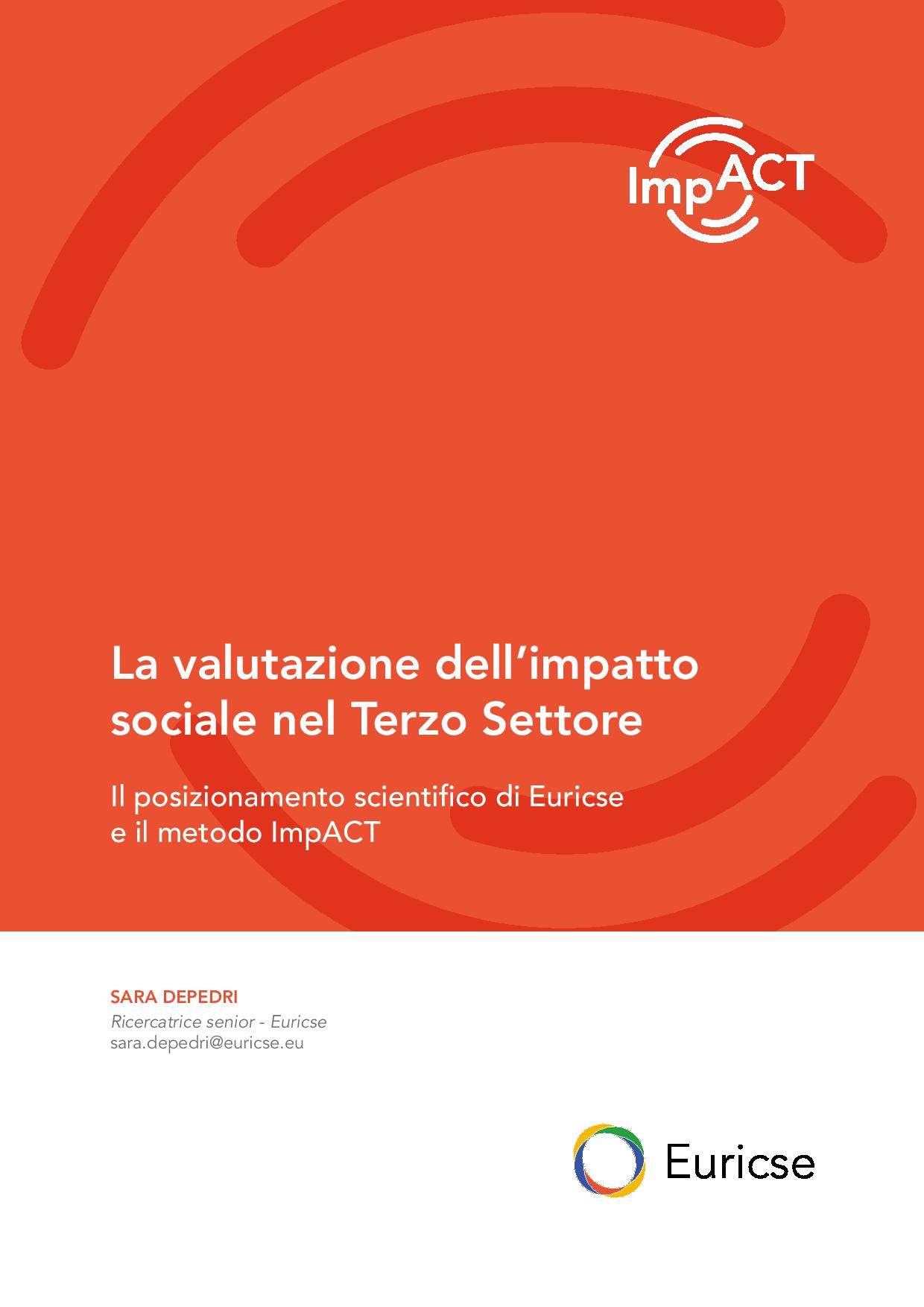Social impact assessment in the Third Sector. Euricse’s scientific positioning and the ImpACT method
This paper aims to reflect on the concepts of evaluation and social impact, to provide a brief scientific reflection on the topic, and above all to illustrate the positioning of our research institute Euricse with respect to the topic of social impact evaluation. Indeed, we have not failed over the past two years to study the topic from a theoretical point of view, but above all to use the research tools and know-how of our institute to build a methodology on which to base social impact evaluation. The thought from which we started is that the methods by which to carry out this evaluation can be different, and the choice among them depends on the evaluator and the goals he or she sets: financiers and investors will tend to favor quantitative methods that allow them to illustrate the economic or monetizable returns of their investments; consumers will mainly need qualitative information and able to communicate the impact generated in primarily environmental and ethical terms, thus leading companies to report on elements of social responsibility; citizenship and policy makers will mainly want to verify the ability of companies to generate added economic and social value in the area, improving the quality of life.
Faced with these alternatives, Euricse sought to develop an evaluation method that would respond to the various reporting needs of social enterprises and, in particular, to those of reporting to the community and public institutions on the quantitative and qualitative effects, efficiency and effectiveness of the activity carried out. The method thus promoted-which will be presented in the next paragraphs-has been named ImpACT. To date, the instrumentation developed with the method has been tested and applied -in collaboration with territorial second level associations- to social cooperatives in the Province of Trento, Friuli Venezia Giulia and Veneto. Thanks to these research activities and the demonstrated effectiveness of the method, we now publicly share what is a critical thought on the topic and use of social impact assessment methodologies to be applied to Italian social enterprises.

